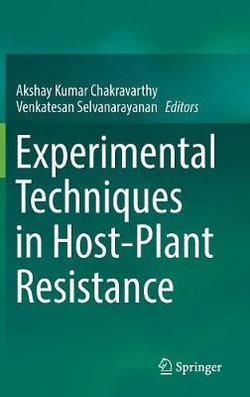The earliest land-plants evolved around 450 million years ago from aquatic plants devoid of vascular systems. The diversification of flowering plants (angiosperms) during the Cretaceous period is associated with speciation in insects. Early insect herbivores were mandibulate, but the evolution of vascular plants led to the co-evolution of other forms of herbivory, such as leaf feeding, sap-sucking, leaf mining, tissue borer, gall forming and nectar-feeding. Plant defense against biotic stress is an adaptive evolution by plants to increase their fitness. Plants use a variety of strategies to defend against damage caused by herbivores. Plant defense mechanisms are either inbuilt or induced. Inbuilt mechanisms are always present within the plant, while induced defenses are produced or mobilized to the site where a plant is injured. Induced defense mechanisms include morphological, physiological changes and production of secondary metabolites.
Host plant resistance (HPR) is one of the eco-friendly methods of pest management. It protects the crop by making it less suitable or tolerant to the pest. While books on theoretical aspects of HPR are available, an exclusive book on the practical aspects is lacking. There is a wide gap between the theory and the experimental procedures required for conducting studies on plant resistance for the post graduate students and young researchers. A dire need for a book on practical aspects was strongly felt. Initially a practical manual was prepared which eventually evolved into the present book. We hope this book provides information on major aspects of screening crop germplasm, sampling techniques, genetic and biochemical basis of HPR, behavioural studies on pheromone and plant volatiles, and some of the recent approaches in HPR. Further, the references provide the scientific articles and books as additional information to readers and workers alike.
- ISBN:
- 9789811326516
- 9789811326516
-
Category:
- Botany & plant sciences
- Format:
- Hardback
- Publication Date:
-
05-05-2019
- Publisher:
- Springer Verlag, Singapore
- Country of origin:
- Singapore
- Pages:
- 301
- Dimensions (mm):
- 235x155mm
- Weight:
- 0.65kg
This title is in stock with our Australian supplier and should arrive at our Sydney warehouse within 2 - 3 weeks of you placing an order.
Once received into our warehouse we will despatch it to you with a Shipping Notification which includes online tracking.
Please check the estimated delivery times below for your region, for after your order is despatched from our warehouse:
ACT Metro: 2 working days
NSW Metro: 2 working days
NSW Rural: 2-3 working days
NSW Remote: 2-5 working days
NT Metro: 3-6 working days
NT Remote: 4-10 working days
QLD Metro: 2-4 working days
QLD Rural: 2-5 working days
QLD Remote: 2-7 working days
SA Metro: 2-5 working days
SA Rural: 3-6 working days
SA Remote: 3-7 working days
TAS Metro: 3-6 working days
TAS Rural: 3-6 working days
VIC Metro: 2-3 working days
VIC Rural: 2-4 working days
VIC Remote: 2-5 working days
WA Metro: 3-6 working days
WA Rural: 4-8 working days
WA Remote: 4-12 working days




Share This Book: